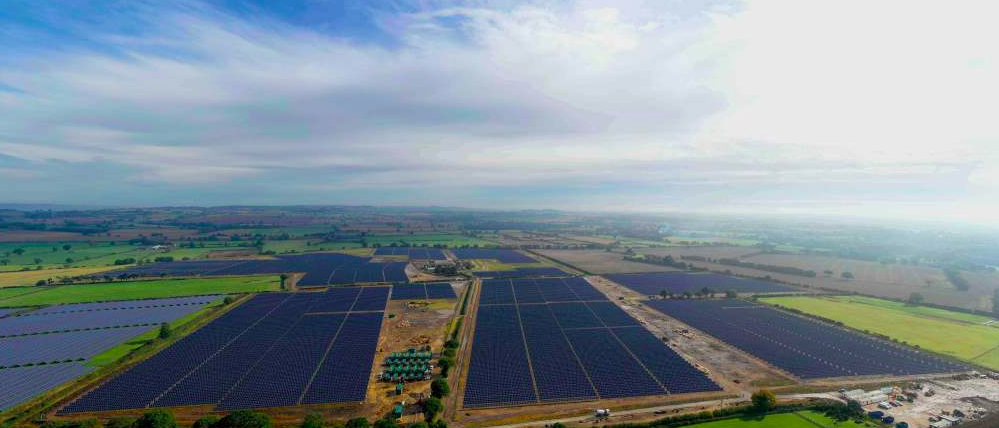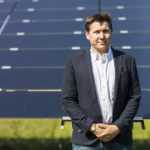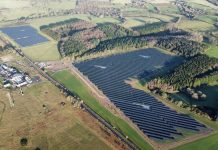 Gridserve has completed a huge co-location project for Warrington Borough Council. The 34.7MW solar and 27MW storage farm at York was constructed in five months.
Gridserve has completed a huge co-location project for Warrington Borough Council. The 34.7MW solar and 27MW storage farm at York was constructed in five months.
The council, which is also buying a 25.7MW solar farm at Hull, expects to earn millions of pounds in annual revenue from the two schemes, selling power and grid services from the York farm while using the Hull development to power its own buildings. Sleeving in its own power is expected to save the council around £2m a year.
Subject to planning permission, the York site is also expected to be one of the first of Gridserve’s ‘electric forecourts’, battery powered hubs for ultra-fast electric vehicle charging.
“Oven ready” model
Gridserve CEO Toddington Harper said Warrington’s schemes set a blueprint to follow for other local authorities that are serious about delivering net zero.
“I think this is the first of a whole new era,” Harper told The Energyst. Net zero aside, “they just stack up and outcompete conventional generation on pure economics, including gas peakers,” he claimed.

“We have the model, now we just need to repeat it many times. Hitting net zero in thirty years is a big challenge. But we want to move the needle in the next ten years, because if we cannot limit global warming to 1.5 degrees C, there’s quite a lot of evidence to suggest things are going to get a lot worse.”
Harper suggested that its approach provides councils with an “oven ready” model to follow.
“We derisk their investment as much as possible. We [and our backers] build them out and ensure that they are fully working and operational before completing ownership handover. That is a really attractive model to local authorities, because they do not have to shoulder construction and development risk. In effect, it is an “oven ready” business model. Because it is generating revenues greater than their costs.”
Solar+storage+EV chargers
Harper said the Gridserve has started preliminary construction of its first electric forecourts, with an announcement due in the new year. It aims to develop around a hundred sites, around a quarter of which will have solar hybrid projects attached, though Harper said delivering solar-storage-EV charging sites is no walk in the park.
“There is a huge amount of complexity in delivering an electric forecourt network, over and above a hybrid solar project,” he said, adding that the step change was much greater than moving from subsidised to unsubsidised renewables. “There is a lot of stuff you have to make work,” said Harper. “But we are going to do it.”
Consolidation “inevitable”
Pivot Power also plans to deliver a network of electric vehicle charging hubs powered by massive batteries. The company was recently acquired by EDF Energy. Harper, who was CEO of Belectric before it was sold to Innogy, says further consolidation is “inevitable”.
“We are evolving from a world of a small number of very big power stations to a world with a very large number of small generators plus storage. So some very large companies need to embrace new business models. Therefore consolidation is inevitable,” said Harper.
“Belectric to Innogy is a very good example and consolidation is happening across industries, automotive and energy included. Change is upon us, and organisations need to evolve or face the consequences.”
See a video of the York scheme’s construction here.
Related stories:
Superchargers: Why the chicken crossed the road
Warrington Council signs massive solar-storage-EVs deal
Click here to see if you qualify for a free subscription to the print edition or to renew.
Follow us at @EnergystMedia. For regular bulletins, sign up for the free newsletter.



